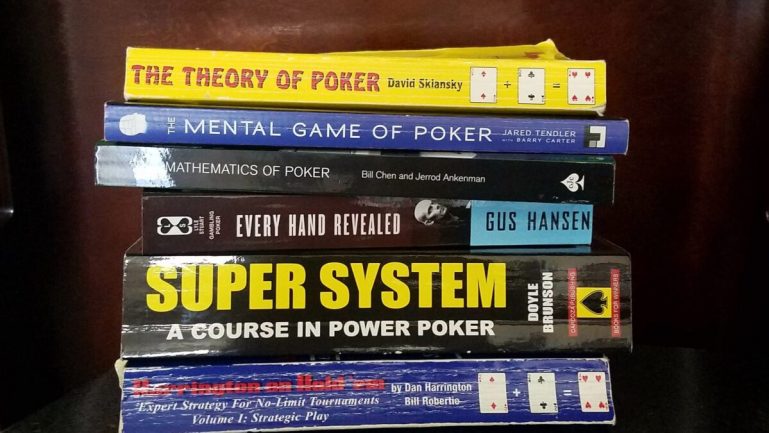Who is The Congressman Accidentally Wrote a Poker Book

It may come as a surprise, though, that the man commonly credited with authoring one of the first poker rulebooks was a former U.S. by the congressman accidentally wrote a poker book. Robert C. Schenck, a former member of the House of Representatives, came to write a short book on how to play five-card draw by mistake.
After serving in Congress as an Ohio representative from 1843 to 1851, Schenck became an ambassador in South America, backed Lincoln in the 1860 presidential election, fought as a Union general in the Civil War, and returned to Congress as an Ohio representative from 1863 to 1870.
After losing a tight reelection bid in 1870, President Ulysses S. Grant selected Schenck as Minister to the United Kingdom, and the following summer he went to England, where he would serve for the next five years.
The Congressman Accidentally Wrote a Poker Book : Schenck was Draw and Rules for Playing Poker?
Schenck would write his brief primer, Draw. Rules for Playing Poker, while in London. Some have speculated that he authored the book to teach the American game to Queen Victoria, but in reality, Schenck was requested to write down the rules after a weekend of card-playing with friends in Somerset. After complying with the request, Schenck was astonished to discover that his guidelines had been published and shared as a book by his pals.
Schenck’s short “how-to” book debuted sometime after the American version of Hoyle’s Games began containing allusions to poker, with the first appearing in the 1845 edition of the “American Hoyle.” Despite its small size, Schenck’s compact work is often regarded as the first example of a book wholly devoted to poker.
It’s silly to think that an ex-Congressman and US Ambassador writing such a book must mean that poker which, as we’ve seen, was still a game being played in saloons, gaming cellars, and on sailboats and rife with cheaters, cardsharps, and other ne’er-do-wells had become relatively acceptable in American popular culture.
The Congressman Accidentally Wrote a Poker Book : An Apology
Schenck himself explains in “The Author’s Apology,” which was added when the book was reprinted in the United States in 1880, that while the printing of his book was “intended as a compliment” by his English friends, its presence “unwittingly brought down on me the wrath and repulsion of so many good people in America.”
The congressman accidentally wrote a poker book, Schenck has already had his fair share controversy by that stage in his life. That’s because, by the time Schenck penned that “Apology,” his reputation had suffered greatly as a result of his involvement in a failed speculative endeavor – the Emma Mine Company of Utah.
It wasn’t long after Schenck arrived in London in 1871 that he was hired by Emma Mine to try to sell shares of the firm there. Unsurprisingly, the Minister was chastised for doing so, but when Schenck approached Grant for advice, the president informed him he could keep going as long as he handled himself honestly.
The Congressman Accidentally Wrote a Poker Book : What Schenck Died
Despite being a Congressman, Civil War commander, and ambassador, when Schenck died in the spring of 1890, it looked that his greatest lasting legacy would be that modest book about poker. A remark sent by the editors of Publication just a few weeks after his death demonstrates how Schenck’s name will be permanently tied with America’s card game.
They stated, “Many a guy earns his renown out of the most surprising elements.” “Who has ever thought of General Schenck without immediately thinking of poker? Nonetheless, General Schenck’s poker game was just one instance in a busy life.”
Nonetheless, Schenck’s “apology” demonstrates how, in general, many Americans were skeptical of the game.
The Congressman Accidentally Wrote a Poker Book : All About Schenck Excellent Job
In terms of the book itself, Schenck does an excellent job of describing the basics of five-card draw while also providing some tactical guidance. The rules effectively describe the game as we know it, including the deal, an initial round of betting, the draw, a second round of betting, and the showdown.
Meanwhile, the strategic recommendations are also rather accurate in terms of what we know about the game today.
Schenck opens the book by saying, “The bargain is of no unique value, and anybody can begin.” However, he appears to be talking to the mechanics of getting going rather than the importance of position here. Indeed, his guidance later as The congressman accidentally wrote a poker book that displays an understanding that status counts. Currently the shift in gambling is towards slot gacor.
The Congressman Also Discusses The Impact Bluffing
“It is an excellent item for perplexing your foes,” adds Schenck. “To that purpose, it is permissible to chaff or spout gibberish in order to deceive your opponents as to the worth of your hand, but this must be done without unduly prolonging the game.”
Despite being published over a century and a half ago, Schenck’s observations are still relevant today, wouldn’t you say?
Schenck also discusses tells, stating that “a skilled player would study and examine what each player draws, the look on his face, the circumstances and way of betting, and assess, or try to judge, the worth of each hand opposed to him appropriately.”
Toward the conclusion, there are some specific advice about how to play various hands, and while these tips aren’t as detailed as Mike Caro’s, they do explain universally agreed-upon notions regarding often encountered scenarios in five-card draw.
Schenck’s last summation of advice to the draw-poker player demonstrates that the former Congressman possessed not just a thorough comprehension of the game but also a certain level-headedness that benefited him at the tables.
Read More: Fruit Super Nova Slot Review: Medium Volatility, RTP 96.03%
